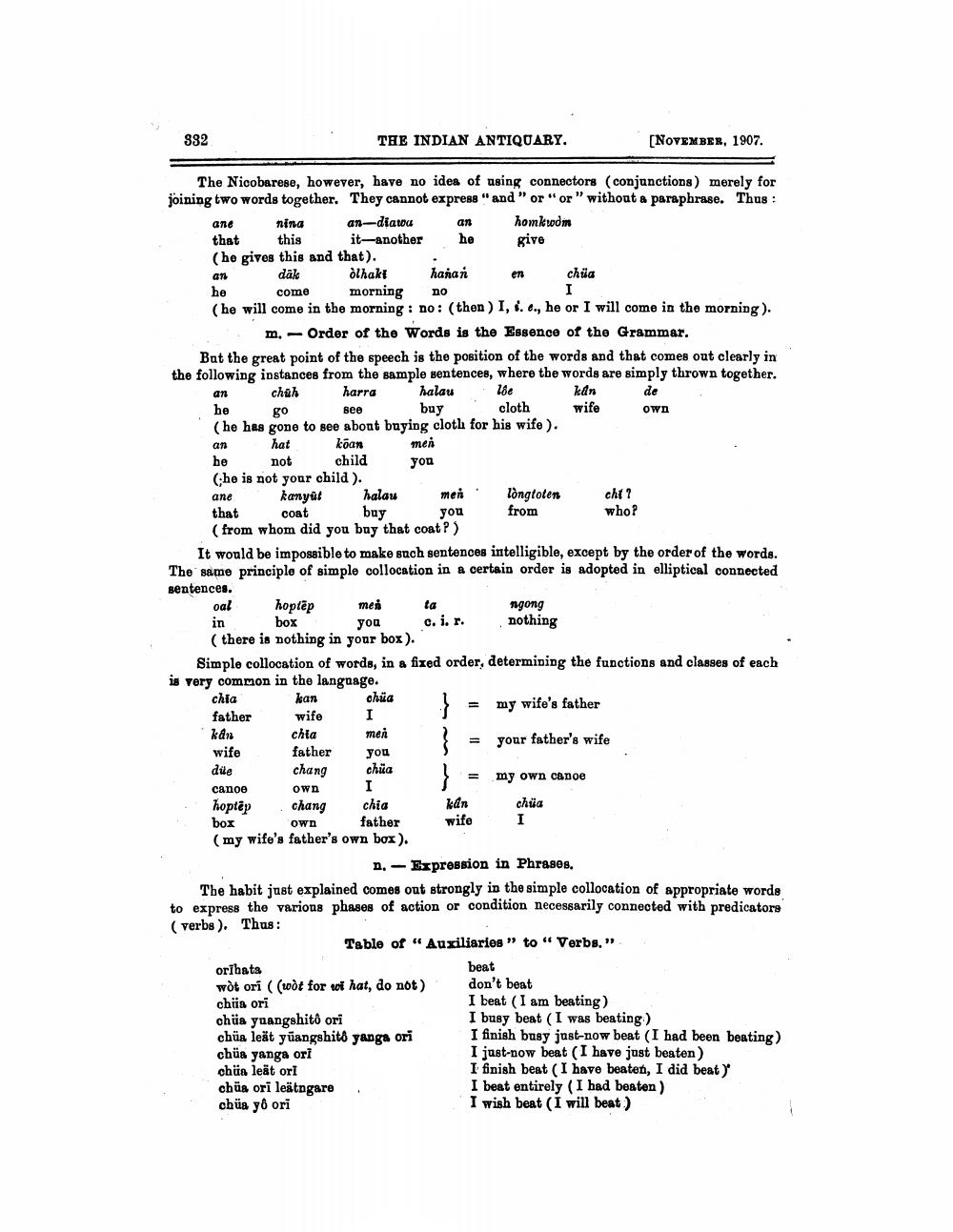________________
332
THE INDIAN ANTIQUARY.
(NOVEMBER, 1907.
kan
The Nicobarese, however, have no idea of using connectors (conjunctions) merely for joining two words together. They cannot express " and " or "or" without a paraphrase. Thus :
ane ning an-diatou an homkuom that this it-another he give (he gives this and that).
dāk olhaki haran en chua he
come morning no (he will come in the morning : no: (then) I, 1. e., he or I will come in the morning).
m. - Order of the Words is the Essence of the Grammar. But the great point of the speech is the position of the words and that comes out clearly in the following instances from the sample sentences, where the words are simply thrown together. an chūh harra halau ide
de he go
Bee buy cloth wife
own (he has gone to see about buying cloth for his wife). an hatkoan mei he not child you (che is not your child ). ane kanyut halau mer longtotens cht? that coat buy you from
who? (from whom did you buy that coat?)
It would be impossible to make such sentences intelligible, except by the order of the words. The same principlo of simple collocation in a certain order is adopted in elliptical connected sentences. oal hoptēpm en
ngong in b ox
you c.i.r. nothing ( there is nothing in your box).
Simple collocation of words, in a fixed order, determining the functions and classes of each is very common in the language. chia tan chüa
} = my wife's father father wife kan chia mei
} = your father's wife wife father you due
chua
} = my own canoe canoe own hopter chang chia kan chua box own father
wife I (my wife's father's own box).
р, — тргөввion in Phrases. The habit just explained comes out strongly in the simple collocation of appropriate worde to express the various phases of action or condition necessarily connected with predicators ( verbs). Thas:
Table of "Auxiliaries" to " Verbs.” orihats
beat wòt ori ((wòt for ni hat, do not) don't beat chiia ori
I beat (I am beating) chüa yuangshitô ori
I busy beat (I was beating) chùa leät yũangshitô yanga ori I finish busy just-now beat (I had been beating) chüs yanga ori
I just-now beat (I have just beaten) chữa leặt ori
I finish beat (I have beaten, I did beat ) chüs ori leätngare
I beat entirely (I had beaten) chüa yo ori
I wish beat (I will beat )
chang




